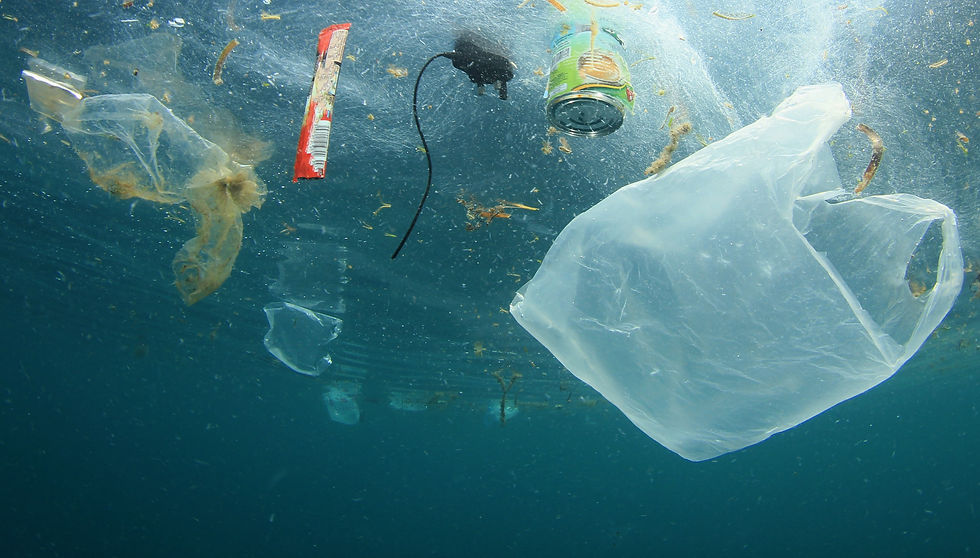What's a solution to Microplastic pollution?
- Jul 1, 2020
- 2 min read
Updated: Aug 13, 2021

Did you know, 8 million tons of plastics enter our oceans each year...
That's like dumping a truckload of plastic into the ocean every minute! Since the 1960's many natural materials such as wood, glass, metal and wool have been replaced with synthetics materials, like plastic. Part of this plastic waste is made up of 'microplastics'.
WHAT ARE MICROPLASTICS?
Microplastics are tiny synthetic particles or fibres, less than 5mm long.
Key categories that fall under the microplastics umbrella are microbeads and microfibers.
Microbeads are those small grains found in personal care products like body wash or toothpastes. In 2015 the federal Microbead-Free Waters Act became law in the USA with many other countries following this example. The law requires companies to stop the manufacture of these tiny plastic beads in personal care products.
Microfibres are plastic fibres and can be found in synthetic garments or fabrics like towels, sheets etc.
Synthetic fibres like polyester, nylon and acrylic come under this category. These microplastics enter our waterways via laundering, polluting our oceans and are absorbed by marine life. Microplastics are ending up in our bodies via our food and water consumption. Even our vegetables aren’t safe, with water being used to feed agricultural pastures.
Plastic pollution is an issue, not only because plastic and synthetic fibres are made from fossil fuels (which is a major contributor to the climate crisis...), but also because most plastic can take hundreds of years to decompose completely. And our plastic consumption increases each year.

SO, WHAT CAN WE DO ABOUT IT?
Change starts with you. It can feel like a huge problem (which it is!), one that's too big to take on. But if everyone works to reduce their own plastic use, bit by bit, we can move towards a cleaner world.
It requires moving from a 'throwaway mindset' to an 'investment mindset' - where we're more mindful of the items we use and purchase, considering what things are made from, as well as how it was produced, who made it...
Choose natural. Products and clothing made from natural fibres and materials, like wool, are produced naturally and biodegrade easily, posing no threat to aquatic life.
We each have the power to choose the companies we support and the products we use - Where do your things end up after you’re finished with it?







